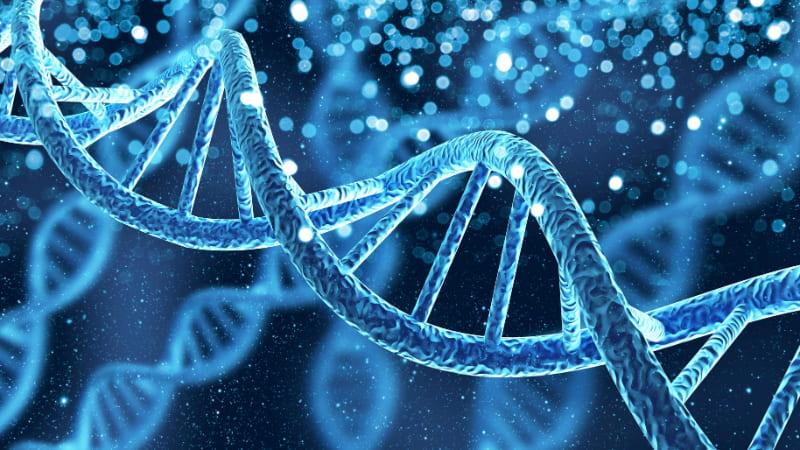
STAT1 and STAT3 gain of function
STAT1 and STAT3 gain of function are autosomal dominant primary immunodeficiencies with significant autoimmunity as a result of immune dysregulation.

STAT1 and STAT3 gain of function are autosomal dominant primary immunodeficiencies with significant autoimmunity as a result of immune dysregulation.
The definitive diagnosis for both STAT1 and STAT3 GOF diseases currently consists of genetic testing and confirmation with functional tests. Thus far, the functional tests are only available on a research basis. However, it is critically important to perform a comprehensive immune evaluation to understand how the disease has affected the immune system.
Variants in STAT1 and STAT3 genes that cause gain of function are inherited in an autosomal dominant manner. However, STAT1 and STAT3 GOF variants can also occur spontaneously in individuals in which a parent is not affected.
Treatment of individuals with STAT1 GOF and STAT3 GOF diseases concentrates on suppressing the immune system to treat autoimmunity, treating infection, and preventing further infection.
Treatment of the autoimmunity is challenging. If there is hypothyroidism or diabetes, hormone replacement with thyroid hormone or insulin is indicated. Other autoimmune features, including autoimmune anemia or thrombocytopenia (low platelet count), often are treated with corticosteroids or other immune-suppressing medications. In some cases, the autoimmune features fail standard therapy and require the addition of several immunosuppressing agents. In these cases, risk of infection increases, as these medications suppress the immune system further.
Treatment of CMC in STAT1 GOF often requires oral or intravenous antifungal medications, and individuals should remain on antifungal prophylaxis to prevent CMC. The immunologic evaluation—whether there is low lymphocyte count or function and whether there is hypogammaglobulinemia—will dictate whether an individual may need to receive prophylaxis against bacterial, fungal, or viral infections. Some individuals receive immunoglobulin (Ig) replacement therapy when there is low IgG.
The biology that leads to STAT1 and STAT3 activation has afforded the opportunity to use specific therapeutic agents that interfere with the mechanism of disease at the cell level. In STAT3 GOF, there is a strong signature with the inflammatory cytokine, IL-6. IL-6 is a cytokine that is associated with the development of specific autoimmune diseases, particularly rheumatoid arthritis. Blockage of IL-6 with medications such as tocilizumab has been effective in a small number of STAT3 GOF individuals who have autoimmunity.
Both STAT1 and STAT3 are activated in the cell after activation of specific proteins called janus kinases (JAK). Two medications are available that block JAK-induced activation of STAT proteins: tofacitinib and ruxolitinib. These JAK inhibitors have been used off-label (in a non-FDA-approved way) in a small number of individuals and have been extremely successful at improving or resolving autoimmunity and in treating CMC.
Tocilizumab, ruxolitinib, and tofacitinib are all FDA-approved medications for the treatment of other diseases but are not approved for use in STAT1 or STAT3 GOF. Therefore, these medications should be used cautiously, only when other methods of treatment have failed, and in consultation with an immunologist or rheumatologist. Clinical trials to understand how best to use these medications in individuals with STAT1 and STAT3 GOF are forthcoming.
Lastly, hematopoietic stem cell transplantation (HSCT) has been used successfully as a form of treatment in a small number of individuals with STAT1 and STAT3 GOF. In all cases, the transplantation was performed as a lifesaving procedure. Overall survival was disappointing at 40% and 56% in individuals with STAT1 and STAT3 GOF, respectively. Determining the optimal transplant strategy needs further study before HSCT is more widely and routinely used.
Individuals with both diseases must take caution with infection exposures. Inflammation from infection can trigger or worsen inflammatory and autoimmune manifestations, especially in the lungs and intestines. Individuals with STAT1 GOF are especially susceptible to fungal disease and viral disease with herpes family viruses. Individuals with STAT3 GOF are susceptible to progressive autoimmune disease.
With early diagnosis and treatment of infections and autoimmunity with targeted therapy, individuals can be stabilized. For the more severe presentations, HSCT can be considered after a thoughtful discussion between the family and the immunology provider in order to weigh the risks and benefits on an individual basis. Genetic counseling is important for individuals and their families.
This page contains general medical and/or legal information that cannot be applied safely to any individual case. Medical and/or legal knowledge and practice can change rapidly. Therefore, this page should not be used as a substitute for professional medical and/or legal advice. Additionally, links to other resources and websites are shared for informational purposes only and should not be considered an endorsement by the Immune Deficiency Foundation.
Adapted from the IDF Patient & Family Handbook for Primary Immunodeficiency Diseases, Sixth Edition.
Copyright ©2019 by Immune Deficiency Foundation, USA
Receive news and helpful resources to your cell phone or inbox. You can change or cancel your subscription at any time.